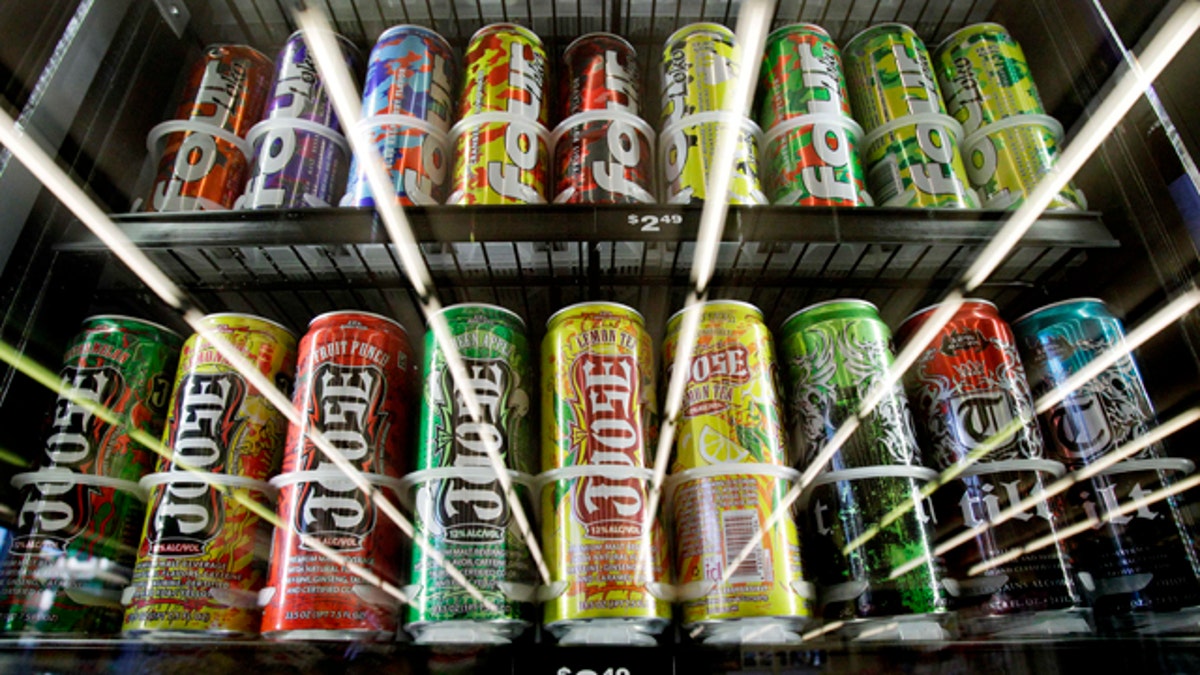
Nov. 10: Alcoholic energy drinks are seen in a cooler at a convenience store in Seattle. (AP)
Mixing alcohol and energy drinks increases the urge to drink more than drinking alcohol alone, according to a new study from Australia.
The findings suggest that people who mix alcohol and energy drinks may end up drinking more alcohol than they intended, said the study’s lead author.
“Obviously these findings are not going to deter young people from drinking if they want to get drunk, but they need to be mindful that they may be unwittingly putting themselves at a greater risk of accidents and injuries because they end up drinking more than they had intended,” Rebecca McKetin said in an email.
The study results are similar to those of research published by a U.S. group last year, write McKetin and her coauthor Alice Coen, who are both with the Australian National University’s Center for Research on Ageing, Health and Well-being in Canberra.
“We normally think of alcohol as a depressant, but it also has a stimulant effect, and it is this stimulant effect that is most strongly related to how much we like alcohol, and whether we want to keep drinking,” McKetin said. “Energy drinks contain caffeine. Caffeine, being a stimulant, tends to bring out the stimulant effects of alcohol intoxication. It may be this that causes energy drinks to increase the desire to keep drinking alcohol.”
For the new study, she and Coen recruited 75 participants between the ages of 18 and 30 years. The participants were assigned to drink either vodka mixed with soda water or vodka mixed with a popular energy drink.
Both cocktails also contained some fruit juice. The participants were unaware of which cocktail they drank.
The participants answered a series of questions before they drank their cocktail and again 20 minutes afterward.
Those who drank the cocktail containing vodka and the energy drink reported a greater urge to drink afterwards than those who drank the cocktail of vodka and soda water. That was especially true among the test subjects who had higher blood alcohol levels, the researchers found.
Those who drank the cocktail containing the energy drink and vodka also reported “liking” their drink more than those who had the cocktail with only vodka and water, the researchers note in Alcoholism: Clinical & Experimental Research.
“In our study we could not confirm whether or not people’s desire to keep drinking was due to the sweetness of the energy drink or the caffeine that it contained,” McKetin said.
She added that previous research suggests it is the caffeine rather than the sweetness that is causing the effect.
The new research alone is not enough to advocate for policies restricting the availability of energy drinks in bars, because they can’t be sure how people respond to alcohol and energy drink mixtures in real life situations, McKetin said.
“We need to demonstrate that combining energy drinks with alcohol leads to a significant increase in people’s drinking and alcohol-related problems,” she added. “We will then be in a stronger position to regulate the availability of these beverages and deliver public health messages about their potential harm.”








































